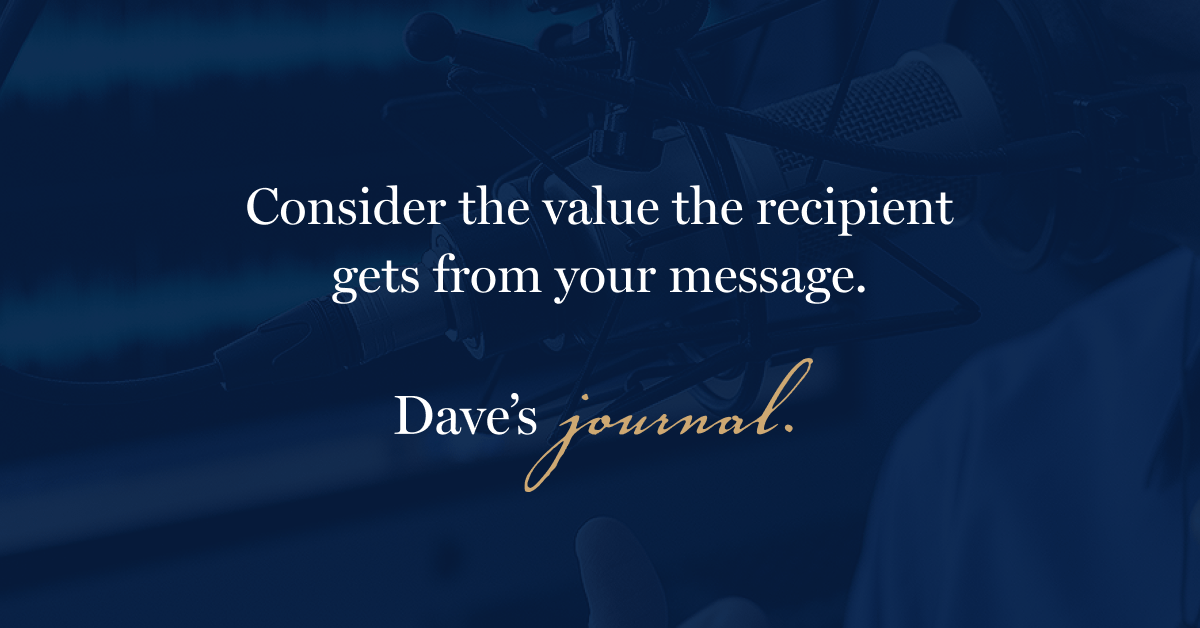When I first started the Coaching for Leaders podcast back in 2011, it didn’t even occur to me to reach out to well known experts to appear on the show.
At some point after the first year, I got a little braver. (Not smarter, but braver.) I started sending out some invitations, asking experts to appear as guests.
Based on the lack of responses, most of these emails probably went ignored. I still remember well the response from an assistant of a well-known expert who wrote back and thanked me so kindly for reaching out, but said that sadly she couldn’t make the interview work with this person’s schedule.
While I knew that was probably code for “your show isn’t big enough” I was oddly thrilled that someone actually read an email and considered the request at all.
About a year later, I saw that this same expert had a new book coming out. I thought it might be a good time to reach out again, so I pulled up the prior conversation in my inbox. I noticed that the subject line of the email I sent a year earlier was this:
Invitation to appear on Coaching for Leaders
It suddenly hit me like a ton of bricks.
Nobody, especially back then, knew or cared about appearing on my show. They were instead wondering the same thing that all of us wonder — especially when we get a request for time from someone we don’t know:
What’s in it for me?
I drafted a new email with this subject line:
Invitation to promote your new book
This time, I drafted a message with only the relevant information about the show that would matter in the context of this expert getting traction for their work.
I hit send.
Three hours later, the interview was booked.
For a long time, I’d made the mistake of sending too many emails that were written from the point of view of my interests. After booking this interview, I realized how critical it was for me to be making requests that spoke to the interests of the recipient.
I had spent a year writing invitations that completely ignored one of the principles I’d been teaching at Dale Carnegie:
Try honestly to see things from the other person’s point of view.
I’ve discovered this is critical for subject lines. If the subject line doesn’t provide immediate, apparent value to the recipient, it’s far less likely to get attention, if it’s opened at all.
You don’t need to be a creative genius to get results with this. Consider the value the recipient gets from message. Here’s an example of an average subject line:
Agenda for today
Instead, make the value of the same message more apparent with a subject line like this:
3 key points for your 1pm meeting
The value of that subject line is more more specific and apparent.
Draft at least one email today will a subject line that demonstrates value to the recipient. If you do, your emails are much more likely to be noticed, read, and acted on.
Dave's Journal is available by audio on Apple Podcasts, Google Podcasts, Overcast, Stitcher, and Spotify.





